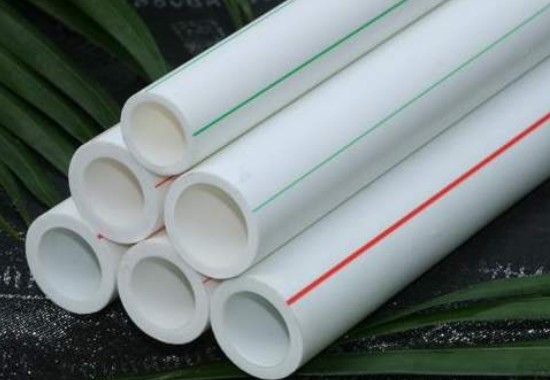Oct . 11, 2024 04:13 Back to list
wholesale type of ppr pipe
Understanding Wholesale Types of PPR Pipe
PPR pipes, or Polypropylene Random Copolymer pipes, are becoming increasingly popular in the construction and plumbing industries. Known for their versatility, durability, and resistance to high temperatures and pressures, PPR pipes have become the go-to solution for many plumbing and piping systems. This article will delve into the various types of PPR pipes commonly available in the wholesale market, their applications, benefits, and the factors to consider when purchasing them.
Types of PPR Pipes
1. Standard PPR Pipes These are the most common type found in wholesale markets. Standard PPR pipes are usually produced in various diameters and thicknesses, making them suitable for numerous applications, including water supply and drainage systems. They come in green, white, or grey colors and can be used for hot and cold water distribution.
2. PPR Pipes with Reinforcement Some PPR pipes come reinforced with layers of fiberglass or other materials to increase their strength and resistance to thermal changes. These pipes are ideal for use in areas with extreme temperatures or where heavy loads are expected. Reinforced PPR pipes are typically more expensive than standard pipes but offer improved durability and reliability.
3. Multilayer PPR Pipes These pipes consist of multiple layers, with an inner layer of PPR and outer layers of additional materials (like aluminum). This configuration enhances the pipe's ability to handle pressure and temperature fluctuations. They are particularly suitable for systems that require the transport of hot and cold liquids.
4. PPR Fittings and Accessories In addition to pipes, wholesale prices often include a variety of PPR fittings and accessories. These can include elbows, tees, reducers, and end caps. High-quality fittings are essential for ensuring leak-proof connections between pipes and maintaining the integrity of the entire system.
Applications of PPR Pipes
PPR pipes are versatile and can be used in various applications. Some of the most common uses include
- Hot and Cold Water Supply PPR pipes are ideal for both hot and cold water systems due to their excellent thermal resistance.
- Heating Systems Many HVAC systems utilize PPR pipes for distributing hot water, as they can withstand high temperatures.
- Industrial Applications The chemical resistance properties of PPR pipes make them suitable for transporting chemicals in various industrial settings.
- Drainage Systems Their durability also allows PPR pipes to be used in waste and drainage applications
.wholesale type of ppr pipe

Benefits of PPR Pipes
1. Durability PPR pipes offer excellent mechanical strengths and are resistant to impact, making them long-lasting options for various piping needs.
2. Corrosion Resistance Unlike metal pipes, PPR does not corrode or rust over time, maintaining the integrity of the water supply.
3. Cost Efficiency In the wholesale market, PPR pipes offer significant savings when bought in bulk. Their long lifespan and reduced maintenance needs further contribute to lower overall costs.
4. Easy Installation PPR pipes can be easily installed using fusion welding techniques, eliminating the need for supplemental materials.
5. Environmental Friendliness PPR pipes are recyclable and produced from environmentally friendly materials, making them an eco-conscious choice in today's market.
Factors to Consider When Buying Wholesale PPR Pipes
When purchasing wholesale PPR pipes, buyers should consider several factors to ensure they are making the best investment
- Quality Standards Always choose pipes that meet recognized standards and certifications, such as ISO certifications or local regulations.
- Supplier Reputation Opt for reputable suppliers known for providing high-quality products and reliable customer service.
- Price Comparison Compare prices across different wholesalers to ensure you’re getting the best deal while also considering the quality and warranty offered.
- Volume Needs Assess your project requirements to determine the appropriate quantities, as buying in larger volumes often results in better pricing.
In conclusion, PPR pipes offer a reliable and efficient solution for various plumbing and piping needs. By understanding the different types available in the wholesale market, their applications, and benefits, stakeholders can make informed decisions that will contribute to the success of construction projects and installations. As PPR pipes continue to rise in popularity due to their myriad advantages, integrating them into your projects will be a decision backed by both performance and cost-effectiveness.
-
High-Quality PVC Borehole Pipes Durable & Versatile Pipe Solutions
NewsJul.08,2025
-
High-Quality PVC Perforated Pipes for Efficient Drainage Leading Manufacturers & Factories
NewsJul.08,2025
-
High-Quality PVC Borehole Pipes Durable Pipe Solutions by Leading Manufacturer
NewsJul.08,2025
-
High-Quality PVC Borehole Pipes Reliable PVC Pipe Manufacturer Solutions
NewsJul.07,2025
-
High-Quality UPVC Drain Pipes Durable HDPE & Drain Pipe Solutions
NewsJul.07,2025
-
High-Quality Conduit Pipes & HDPE Conduit Fittings Manufacturer Reliable Factory Supply
NewsJul.06,2025

